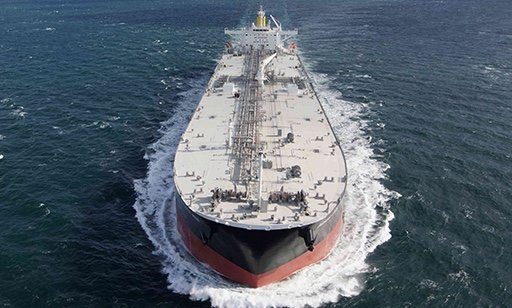
While most shipowners have decided to give Russia a wide berth in the wake of sanctions and the dangerous conditions involved following the invasion of Ukraine, there are some owners making massive gains from trips out of the world’s largest country.
Unconfirmed reports suggest an aframax tanker has recently been fixed from the Baltic to the Mediterranean at about $220,000 a day.
Data from Israeli maritime artificial intelligence platform Windward indicates that most crude oil tankers calling port in Russia since February 28 had registered owners, or registered beneficial owners, that are Greece-affiliated. In addition, the most common registered flag of tankers visiting Russian ports last week was Liberia, with 11 unique tankers.
Greek tanker owners have been the top callers at Russian ports since the start of the invasion
According to shipping platform Sea/ there are a total of 213 vessels destined to arrive at Russian ports in the next two to three weeks made up of 84 bulkers, 127 tankers and two LNG vessels.
Grain exports from Russia have not stopped as data from Sea/ makes clear with both Egypt and Turkey continuing to import vast quantities since the start of the invasion.
Coal exports as well continue to flow out of Russia with China, Japan, South Korea and Taiwan all showing strong Russian import volumes.
In terms of crude exports, analysts at broker Poten & Partners note exports to Asia have picked up in the period since the invasion. The export volumes loaded in Russia destined for Asia averaged 1.4m barrels per day in the 10 days prior to February 24. Since then, volumes have increased to an average of 1.75m barrels per day with India and South Korea noticeably to the fore.
Despite these pockets of exports, Russia is struggling maritime trade-wise. On Friday, Splash reported seaborne trade with Russia had dropped by 58% since the invasion of Ukraine began, according to data from financial data provider Refinitiv, a figure that could increase if the Polish prime minister gets his way.
Over the weekend, Mateusz Morawiecki, the prime minister of Poland since 2017, urged tougher sanctions on Moscow for its invasion of Ukraine and called on the European Union to impose a total ban on trade with Russia.
“Poland is proposing to add a trade blockade to this package of sanctions as soon as possible, both for seaports – a ban on entering Russian-flagged ships with Russian goods – but also a ban on land trade,” Morawiecki told a press conference.
In a big shift for the gas trades, Germany, which hitherto has relied on Russian gas pipelines for much of its energy security, is now in negotiations with Qatar over long term gas supplies. The German government has also prioritised the swift construction of a pair of LNG terminals. German economy minister Robert Habeck was in Doha yesterday to thrash out details of a gas supply deal with Qatar.
In other shipping news related to the invasion, Russia on Saturday claimed that mines that Ukrainians had deployed in the Black Sea could drift as far as the Straits of Bosphorus and the Mediterranean Sea.
“After the start of the Russian special military operation, Ukrainian naval forces had deployed barriers of mines around the ports of Odessa, Ochakov, Chernomorsk and Yuzhny,” the FSB security service said in a statement, adding that the mines were “dilapidated” and made in the first half of the 20th century.
Storms have cut cables to some of those mines that are now floating freely in the western Black Sea, pushed along by wind and the currents, it said. The accusations have been denied by Ukrainian authorities.
Finally in today’s Ukraine invasion news roundup, the Seafarers International Relief Fund (SIRF) has launched a new appeal to the maritime industry to support seafarers and their families impacted by the crisis.
The SIRF is currently addressing basic human welfare – shelter, food, water, transport, access to medical services, along with practical financial help. Support for seafarers and their families will be funded by the SIRF and delivered by maritime charities, trade unions and other not for profit organisations working in various countries.
The SIRF was established in 2021 in response to the Covid-19 pandemic in India. It is managed by The Seafarers’ Charity and supported by The Mission to Seafarers, ISWAN, Sailors’ Society, Stella Maris, and other charities.
Guy Platten, secretary-general of the International Chamber of Shipping, said: “Our number one priority is the safety of our seafarers and their families. Ships and their crews in the area are under threat, while seafarers with families in Ukraine are rightly concerned. Ongoing conflict, violence and uncertainty are causing people to flee their homes and become separated from their families. In some areas, water, electricity, and phone connectivity have been affected with many people now unable to contact their loved ones at sea. I urge the maritime industry to give generously to this important cause and help our seafarers at this time of crisis.”
In addition to their existing and established delivery partners, The Seafarers’ Charity and their delivery partners are establishing new contacts to deliver support on the ground in Ukraine, Romania, Poland, Hungary, Germany, Moldova, and operations are expanding as more is understood about the need.
Small grants are already available to seafarers and their families who have been impacted by the Ukraine crisis and need immediate and urgent financial support through the Ukraine Crisis Support Fund, administered by ISWAN on behalf of the SIRF. Seafarer-centred organisations – including maritime welfare charities, maritime unions, port welfare committees, shipmanagement companies and manning agents – must apply to the Ukraine Crisis Support Fund on the seafarer or their family’s behalf. More information on the fund and how to apply can be found here.
